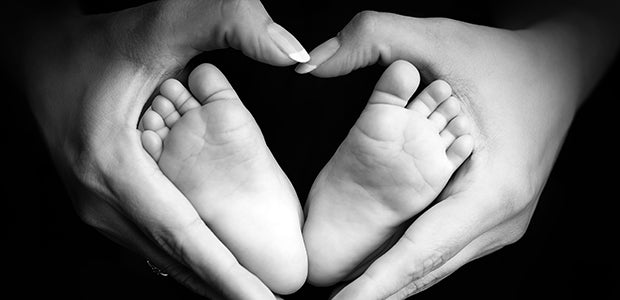By Véronique Cousineau; naturopath, RHN
You've just given birth and you're on honeymoon with your new baby. What a joy it is to discover its smell, its eyes, its little noises, and slowly, its personality. But for many moms, postnatal depression can cloud these sweet moments. Find out how you can prevent postpartum depression and continue to enjoy your new role as a mother.
1- Rest
Easier said than done when baby's arrived. However, several clinical studies have shown that lack of sleep has harmful physiological and psychological consequences. That's why it's important to seek help if you have a baby who's a difficult sleeper.
If you don't have a close family or friends, consider using a respite care service*. Express your milk (if you're breast-feeding) to enable you to sleep for longer, uninterrupted hours. Say no to visitors if you have to, and avoid unnecessary outings. All without guilt!
2- 4th quarter
For the first three months after giving birth, you should treat your body as if you were still pregnant. Practice the same lifestyle as when you were carrying your baby:
- moderate, low-intensity exercise
- balanced diet
- plenty of rest
- help with daily tasks
Everyone wanted to treat you right in the third trimester, so let them do the same in the fourth!
3- Take a weight off your shoulders
Your baby's needs are simple: rest, drink, be cuddled and lightly stimulated. Everything else is superfluous. There will always be people around you with different, even inspiring, ways of doing things. Take the time to filter outside advice and analyze what best suits your family's values. Don't feel the need to impress anyone. Guilt, stress and the need to please will damage your mental and physical health.
4- Breaking isolation
Look for ways to surround yourself. There are many online and community support groups that can help you meet new people and discuss your new lifestyle. If you're breastfeeding, consider joining a breastfeeding support group**. Otherwise, find out more about meetings and outdoor activities for moms. Who knows, you might even develop new friendships!
5- Multivitamins
According to some authors, nutritional deficiencies are often the cause of post-partum depression. Don't underestimate the magnitude of the nutritional needs imposed on your body during this period of physical healing, hormonal changes and milk production.
Continue to take your prenatal multivitamin diligently to make up for certain nutrients. Choose a good-quality multivitamin. They are slightly more expensive, but much more easily assimilated by the body, so you get all the benefits.
6- Protein
With a new baby, lack of time often means that meals become deconstructed and less frequent. But make sure you're getting enough protein (+/- 100g a day). If you're a vegetarian, meet with a naturopath or nutritionist to help you build a menu accordingly.
Amino acids (protein building blocks) support mental health, preventing depression and anxiety disorders. It's a good time to incorporate a smoothie smoothie into your daily routine.
7- Omega-3
According to clinical studies, a diet rich in omega-3s during pregnancy, as well as postnatally, reduces the risk of post-partum depression. Visit omega-3In addition to enriching breast milk, omega-3 fatty acids promote mental health, memory and concentration. Don't hesitate to supplement your diet with omega-3 if it's not rich enough in fish (especially sardines, mackerel, anchovies, salmon and herring), seaweed and/or fish oil. flaxseedof hemp and chia.
8- B vitamins
If you have just given birth, you are at risk of vitamin B deficiency. B vitamins. This group includesfolic acid as well as B12, necessary for the assimilation of iron. There's vitamin B in all green vegetables, so now's the time to add plenty of greens, broccoli, Brussels sprouts and spinach to your plate. Eggs and liver are also rich in B vitamins. These vitamins are also very nourishing for the liver, which is hard at work during this time of hormonal change.
9- Evening primrose oil
Postnatal hormonal changes can be the source of post-partum depression. Evening primrose oil can be used as a hormone stabilizer. Taken in supplement form, it can therefore remedy the source of the problem and offer you a better transition to a new hormonal balance.
10- Zinc
At the end of pregnancy and after childbirth, levels of zinc decreases considerably. Women are then more prone to vaginal yeast infections, skin disorders, depression, anxiety disorders and lack of libido. Zinc is found in meats, shellfish, seaweed and fish. pumpkin seeds. Don't hesitate to supplement your nutritional intake if you experience any of the symptoms listed above.
Of course, if you feel that post-partum depression is setting in, and you experience great sadness, difficulty caring for your baby, episodes of panic, incessant crying or a desire to isolate yourself, contact your midwife or doctor immediately.
*Relief Services
Naissance Renaissance Outaouais
http://www.nroutaouais.ca/relevailles/
819-561-4499
**Breastfeeding support
Nourri-Lait
http://www.nroutaouais.ca/nourri-lait/
819-561-LAIT


